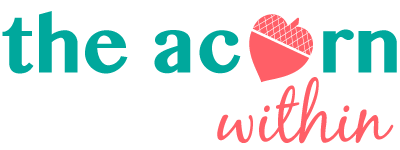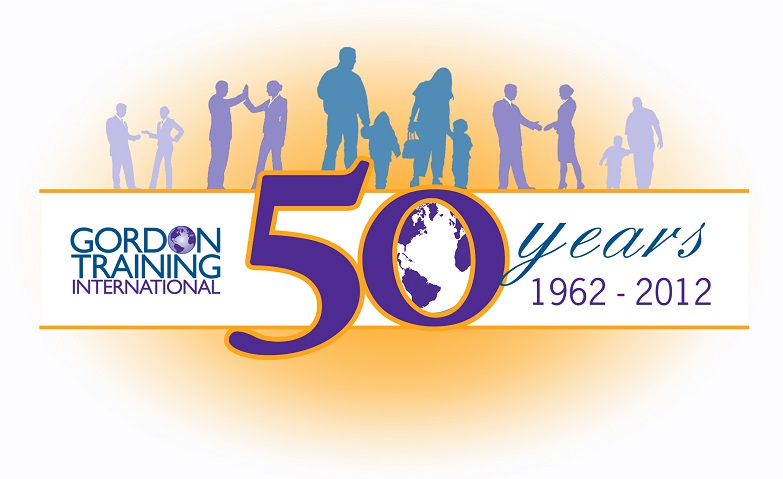Becoming a Model - P.G.D. #3
Far from sharing tips on carriage, makeup or weight loss, I'm here for another kind of conversation about Modeling. It's an important P.E.T. skill we don't have time to fully explore in the course.
We address it formally in the last session as we discuss how to share our deepest and dearest values, such as:
- Family, including respect for elders
- Balance -- Work hard, play hard!
- Perseverance & commitment
- Faith -- a belief in a guiding force or being
- Kindness & compassion
Dr. Gordon says not only is Modeling powerful, but it actually may be the only true way to influence.
“Parents, like many other adults with whom children will come into contact as they grow up, will be models for them. Parents are continuously modeling for their offspring — demonstrating by their actions, even louder than by their words, what they value or believe. Parents can teach their values by actually living them . . . This is the best way, perhaps the only way, for parents to ‘teach’ children their values.”
The topic of Modeling, though, sometimes comes up as early as Session 1! In my January course, for instance, as we called out our long-term goals for our children, one mother wryly pointed out, "Yes, but how many of us are all these things?"
Ouch.
There was an awareness that whenever we were annoyed and demanding that our children "calm down," "be reasonable" or "have the self-control to leave your phone for 15 minutes," we ourselves -- and/or our co-parents -- might not be walking the walk.
More than once, as we perused our list of feelings, parents remarked on the shallowness of our own emotional understanding. "Umm, hold on. What AM I feeling?" We really sensed then how asking an upset child "What's wrong?" could be a communication Roadblock: could we reasonably expect her to know?
Though many of us are well past age 25 when the prefrontal cortex of the brain matures, we recognized that we sometimes struggle with empathy, judgment and rational problem-solving. Naming and processing emotions -- so crucial to feeling whole, confident, resilient and resourceful -- was not part of the upbringing of anyone in the group.
Alright then. If this kind of self-awareness and self-control is at the core of what we want for our offspring, and they are taking cues from us, what's to be done?
Well, here is the three-pronged approach that has helped -- and continues to help -- me become the kind of Model I want for my two sons and one daughter.
Skills Training
A few years ago, as my struggles with my middle child intensified, I found Dr. Gordon's book, Parent Effectiveness Training: The Proven Program for Raising Responsible Children, and devoured it. I sent away for the Family Effectiveness Training program but that failed miserably; I still didn't understand problem ownership well enough and was too easily triggered to run family workshops.
As the conflicts became even more frequent, public and physical, I was pushed to despair and had to make a decision. I stopped my volunteer work representing asylum seekers, turned down other commitments and devoted myself full-time to repairing our family.
I took the same parenting class not once, but twice.
I attended a course called Breakthrough two and a half times.
I started journaling about what worked and what failed spectacularly.
I created a Getting Along Worksheet tailored to my children to help them understand each other better.
I spent a lot of time just trying to BE there for them, in ways I hadn't before.
I'm not saying you have to go to the lengths I did (though I'd love to welcome you into the ranks of P.E.T. instructor!). But you may need to be prepared to make a firm intention and to follow through with practice and more practice, with plenty of mess ups and reflection in between. These communication skills -- Active Listening, Confrontive I-Messages, Shifting Gears etc. -- can feel very foreign and unnatural at first.
Finding support will help you become more competent. That's why I write this P.E.T. Vitamins Blog. There's the Gordon Training International website and Facebook page. Choose to attend the course and follow-up refreshers. Surround yourself with others who love the clarity of the Behavior Window and its useful inquiry: Who Owns the Problem?
You set an important example each time you know what role you'd like to play (helper, confronter, facilitator or consultant, to name a few); which skills to reach for; and what to say and do to get needs -- yours and theirs -- met.
And yet, what keeps some individuals -- like yours truly -- from really owning that catwalk as P.E.T. models is our own stuff. You know, how accepting we are of ourselves, how we interact with our own parents and siblings, how we react to nameless drivers on the roads or the teller at the bank. All that really matters:
So in addition to practicing skills in the parent-child context and reading about parenting and child development, I needed two other strategies.
Inner Child Work
Author after author mentioned it until the writing on the wall became too large to ignore: Making sense of my own past would help me with parenting today.
“The truth is that virtually all of us were wounded as children, and if we don’t heal those wounds, they prevent us from parenting our children optimally.”
“Research has revealed that the best predictor of the security of our children’s attachment to us is our ability to narrate the story of our own childhood in a coherent fashion . . . [H]aving difficult experiences early in life is less important than whether we’ve found a way to make sense of how those experiences have affected us. Making sense is a source of strength and resilience. In my twenty-five years as a therapist, I’ve also come to believe that making sense is essential to our well-being and happiness. ”
This guidance doesn't only apply to those people who survived a lot of trauma as children. As little people, we experience things through our own lenses and derive lessons that may serve in that moment but no longer do.
As a simple, personal example, I learned early on that my tired, single mother appreciated ease and praised me when I acted agreeably. I took on pleasing behaviors that helped me to stay in her good graces and to feel loved. That pattern of not wanting to rock the boat, however, can undercut my meeting my own needs. This is never what my mother intended; it was just a survival mechanism I adopted subconsciously.
Going back to examine these and similar memories -- using Emotional Freedom Technique and Matrix Reimprinting (using EFT on memories) -- has allowed me to loosen the grip of such behavior-shaping beliefs.
And oh! Oh! Oh! A few days ago, I gifted myself my first ever retreat. For 48 hours at the Awakening of Love weekend on Lantau Island, I fully immersed myself in activities, discussion and meditation with about a dozen or so special individuals. My heart opened with compassion toward them as well as the little girl inside me and important people in my life.
The more I came to understand past experiences and to offer myself acknowledgment for how hard they were, the more the edges of old hurts and resentments softened.
I'm now better positioned to revel in the time I spend with loved ones!
Mindfulness
This is very en vogue, with so many entry points for learning, and halleluiah for that! (Here's what a sister P.E.T. instructor shared about the benefits of mindfulness.)
I started by listening to talks by Tara Brach. So taken was I by her intelligent, sensitive and anecdotal way of connecting with her audience that I signed up for her online course. Massive shifts followed.
I attended an all day workshop with my husband and two of our children.
I kept on reading -- The Power of Now by Eckhart Tolle, A Path with Heart by Jack Kornfeld and Self-Compassion by Kristen Neff, among others.
Finally, I started a morning meditation practice of my own ranging from 3-20 minutes.
Throughout the day, I take breaks from my almost incessant thoughts and check in with my body, noticing one breath going in and a longer one going out.
There's no doubt that my children are watching it all.
They have tried some of my strategies -- Jake, who's 15, likes the Headspace app on my phone -- but, more importantly, they see me vulnerable and open. I don't share too much of my childhood, just what I think is appropriate for them to know. But they appreciate my admission that when I fly off the handle or fall into a defensive, mistrustful stance that my behavior has nothing to do with their inherent goodness and everything to do with my own journey of healing.
And that kind of thing happens less and less. Oh, thank goodness! Working on communication skills, tending to my inner child and increasing my mindfulness helps me to choose actions and words that fit the situation and child in front of me now, today, in the present moment.
It's taken time and effort. Not everyone chooses to go this route; it can feel difficult, or painful, or scary, or shaky.
But I hope my children can see that this Modeling is paired with a lightness and joy that they never before saw in me, and feel influenced and inspired nonetheless.
My intention to change meant carving time out of an otherwise "perfectly good day" to stretch myself, sometimes uncomfortably. This is my third entry in the P.G.D. series which targets parents who feel stuck in negative cycles with their kids.
If that's you, please accept my heartfelt message:
No mud, no lotus.
The only way out is through.
I see the good in you.
Credits: Catwalk (http://www.sixmodelsreview.com/wp-content/uploads/2015/11/become-a-model-image-1-800x800.jpg); Brene Brown quote (http://www.azquotes.com/picture-quotes/quote-who-we-are-and-how-we-engage-with-the-world-are-much-stronger-predictors-of-how-our-brene-brown-51-40-98.jpg)







